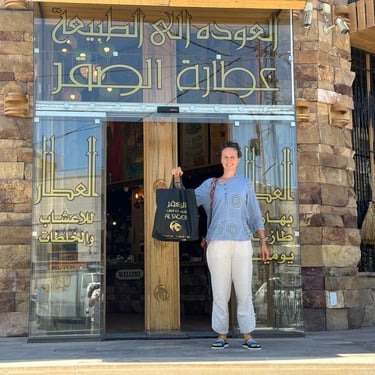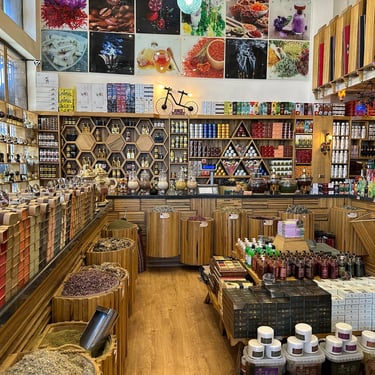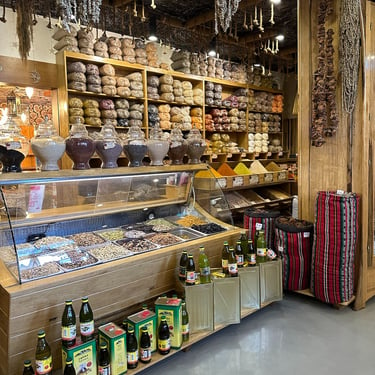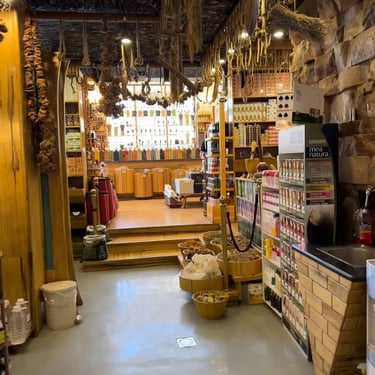Life in Jordan: a Polish woman perspective.
This blog post shares my personal experiences as a European Polish woman living in Jordan. It explores cultural differences, societal values, and daily life in a Muslim country, offering insights into Jordanian culture, food, and the beauty of the Jordanian landscape. The post also reflects on personal growth and the unexpected joys of embracing a simpler way of life.
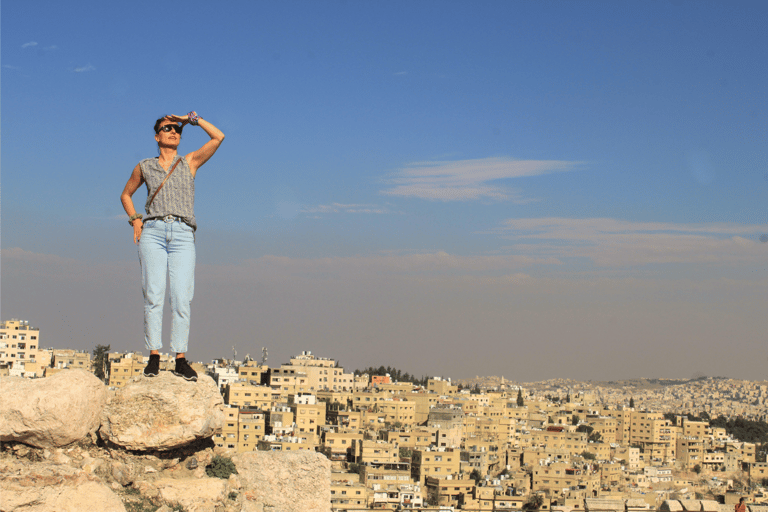

I would like to share with you some of my first impressions of Jordan and my personal experience living in a muslim country as an Expat.
Please remember this is only a personal take and my own subjective opinions written with good intentions in heart.
In conclusion, despite its imperfections, Jordan has become a place I’m proud to call home.
In a world driven by consumerism and materialism, I’m grateful to have found a country with such beautiful people, values, and a simpler way of life.
When I first arrived to Jordan, I was anxious—having never been to the Middle East or a Muslim country before.
But I was met with warmth and kindness. My husband’s family welcomed me without questioning my religion or pressuring me to convert.
It didn’t seem to be important matter to discuss. Instead they were genuinely interested in me, my country and culture.
This sense of openness extended everywhere I went, with locals greeting me with smiles and offering help.
The same goes for Hamza’s friends who welcomed me with open arms and hearts without slightest reservations.
Not to mention my husband, of course but that is another story all together !
At first, I felt self-conscious due to the attention I attracted as a white European woman.
Although I was told by my sister-in-law that this curiosity came from fondness, I couldn’t help but feel uncomfortable receiving privileges that others, particularly Jordanians or Asians, did not, simply due to the colour of my skin.
I am captivated by the culture and life style most of people cultivate here.
Simplicity is what I would use to describe this amazing phenomenon. In a country where there is a huge gap between rich and poor, those last ones appreciate simple joys in life and they will share with you their last piece of bread if you are hungry.
Even in most commercial place like Petra when we wanted to buy a banana for my niece, we got it for free.
When I go to a fruit and vegetables shop and want to buy just few springs of herbs they never charge me for it, besides you can try everything and often get extra fruits for free.
They have this culture here of helping each other and instead of competing they compliment each other even in business aspects.
It impress me when we drive and I see people on the side of the road sitting with tea, shisha, taking their time to pray and to just be.
Some can call it laziness but Jordanians are also very hard-working people.
In country with that big poverty I am surprised how little begging there is on the streets.
Instead people try to earn money by selling flowers or tissues on junctions, or making little praying beads, or just selling sage or parsley they planted in their home.
It is disheartening though to see young children at late hours selling goods in the middle of roundabout, most of them do not even attend school.
I love animals, especially dogs and it was a heartbreaking to discover how many stray dogs and cats there are in Jordan.
Most of them are very starved and often afraid of humans, I think not without a reason.
Dogs here are not treated as pets you can love and build connection with, instead they are used for guarding properties or farms and as a shepherd dogs for herding sheep.
Often they do not receive the treatment they deserve and what I have seen by my own eyes they are threatened and disciplined by violence.
It is very rare here to see a dog being walked on a leash the way we are used to in Europe.
Most of the people think of them only in terms of animals created to serve us not to be petted or loved.
I am also struck by the culture of "food for the poor"—many bakeries have free bread racks, and shopkeepers will feed you if you’re hungry and don’t have money.
Generosity is ingrained here, and if you’re short of cash, shop assistant will often say, “pay me later,” which is a matter of honor.
In three years I have been living in Jordan I have seen one fight on the beach in Aqaba.
Some guys had a disagreement and it got pretty ugly and intense, but it didn’t last long neither.
Arabic people are proud nation and sure they fight and have arguments, but it is nothing like things I have seen in European countries.
I think the fact that people do not drink alcohol here is a main contributor, in the evening you will not see drunk people on the streets doing stupid things.
Thanks to that I realised how bad alcohol is for our civilization and I have given it up all together.
Now, I enjoy social events even more without needing to intoxicate myself.
Through conversations with women, I’ve learned that wearing the hijab is a personal choice.
Women who wear it do so out of a desire for modesty and respect.
They choose to follow cultural and religious practices freely, not out of fear.
Despite the country’s poverty, Jordanians rarely complain about their living conditions.
They appreciate the small things in life, from good weather to health.
My husband’s grandfather always responds with “alhamdolelah” (thank God) when asked how he is, which is a refreshing perspective compared to the frequent complaints I hear from people back home.
Simplicity is an attitude here, and while people have dreams and ambitions, they enjoy the journey toward their goals.
Jordanians are also remarkably open-minded.
For example, when I refused plastic bags at stores and used my own, people were curious but respectful of my choice.
One of the things I love most about Jordan is its safety.
I’ve never felt unsafe, even when walking alone.
Of course, like any place, there are areas best avoided at night, but overall, I feel safer here than I do in cities like London.
The beauty of Jordan’s nature and the weather has been one of the highlights of my time here.
Exploring Jordanian land has been the best, the most amazing and fascinating experience in my life so far.
I love our road trips, enjoying the views while driving up and down through the mountains.
It is even hard to verbalise or capture on photos.
The most surprising for me was going to canyons, especially that when approaching Jordan by plane, all you can see is desert and hills.
I was amazed how many astonishing places there are, hidden between the rocks canyons teeming with life, vegetation, waterfalls and hot springs.
Monumental rocks shaped by wind and water coloured like with paintbrush and being home to birds and lizards, is only a small part of all the beautiful memories I carry in my heart from our Jordanian excursions.
Nature here in many cases is still preserved in its natural shape, there are vast lands unspoiled by buildings and commercial investments.
Although as my husband says Amman, Aqaba and other places have changed drastically in the course of last decade.
Developing is needed for economy, but I have this feeling that here drive for money is not as high as in Western world.
People want to have better live standards but not by all means necessary, they value living in accordance to Quran’s commandments much more than multiplying their assets.
Jordan is not perfect of course and there are things which I do not like that much or even find annoying.
One of them is punctuality and sense of urgency which we define very differently.
Although I think it reflects Jordanian’s approach to life and values, I mentioned before.
What is very strange for me and here very normal, when you call an electrician for example to come to do some work for you, you cannot expect to schedule exact day and time for an appointment, even if you do, it might still be next week.
And that goes for pretty much anything in that respect.
Driving is another thing that ‘drives me crazy’.
Jordanians do not obey any rules or traffic signs, they drive in between lines, turn with no indicator and honk non-stop.
It is really difficult to guess what it means but they seems to understand this honking communication pretty well.
Safety is also very questionable, they carry more people than seats in the car, including passengers in a boot, kids hardly ever use carseats and lean out of the windows and sunroofs while driving a high speed.
Not to mention pedestrians who cross the streets everywhere, walk on junctions and roundabouts, often appearing from nowhere just on the curve.
The same goes for kids who unsupervised wander around the streets and play football on the side of the road.
You never know when will they decide to cross.
That is also the main reason I am reluctant to driving in Jordan. I think I would run someone over within the first 5 minutes.
Although what I can observe from my husband’s driving is that you need to be composed, drive smoothly and go with the flow and you should avoid any collisions like he does!
Besides Amman being the size of London where distance between places is substantial, traffic here is also very heavy and getting anywhere take ages what can be frustrating.
Especially on Thursday which is last day before weekend the streets are crowded even more than usually.
The worst for me in Jordan is rubbish and most importantly a lack of respect among Jordanians for their own nature.
People throw bags of rubbish out of the car while driving on a motorway, in the evening in Downtown in Amman, streets are covered with rubbish that pedestrians just drop on the pavement while walking, I see kids throwing empty sweets or snacks packages just where they stand.
Especially because Jordan is a very windy country, rubbish flys everywhere and wind pushes it back and forth from south to north leaving a lot of bags and plastic bottles behind in places where people do not even resident.
In almost every scenic place you stop, you will see polluted downhills and side roads destroying otherwise perfect landscape.
On the desert pollution is also a very quickly growing issue.
It is heartbreaking how little people care and how small ecological awareness they have.
Although there is a small light in the tunnel as I have recently spoken to our friend tour guide and he advised me that they had already initiated plastic-free tourism practices within their organisation.
I almost forgot about another very important aspect of living in Jordan. Food!
Being vegetarian is not always easy while traveling and I have been to countries like Albania or Cyprus where I struggled to find veggie meals in restaurant’s menu.
In Albania for instance I had to eat from kids menu.
Jordan sure in predominantly a meat-eating country, but there is a lot of options for people like myself too.
My most favourites are falafel sandwich or Egyptian kushari, okra, fasolia (beans) or mlukheyeh.
These are only few veggie options among traditional Jordanian dishes.
On top of that I enjoy nibbling on delicious salads like tabbouleh or fattuoush, ylanji, makdoos (stuffed eggplants), not to mention bread products like fatayer and mu'ajenat.
I also love sweets like kunafeh or ma'mul and all sorts of other sweets you can find in sweets shops like Habibah or Zalatimo, nuts and bakery products such as tamreyeh.
The list is endless of course and calories just keep coming your way.
I indulged myself in Jordanian cuisine the point I put on a lot of weight (almost 15 kg) in my first 6 months here.
We have a whole section in our blog (Jordan travel guide) dedicated to food.
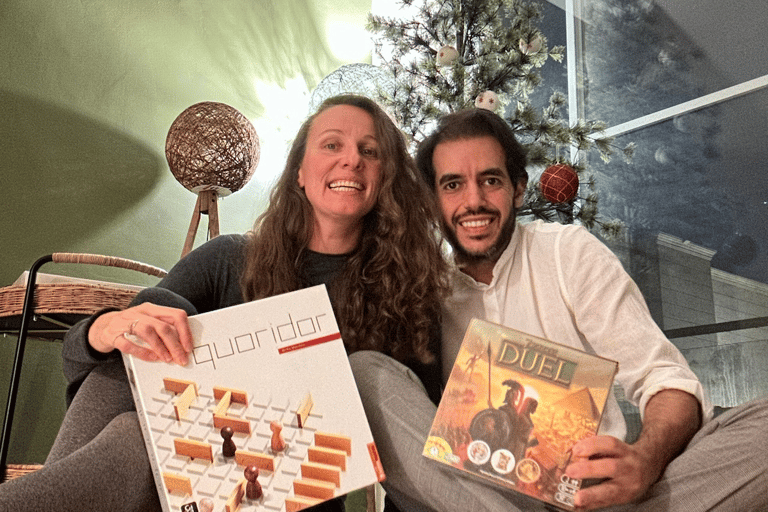

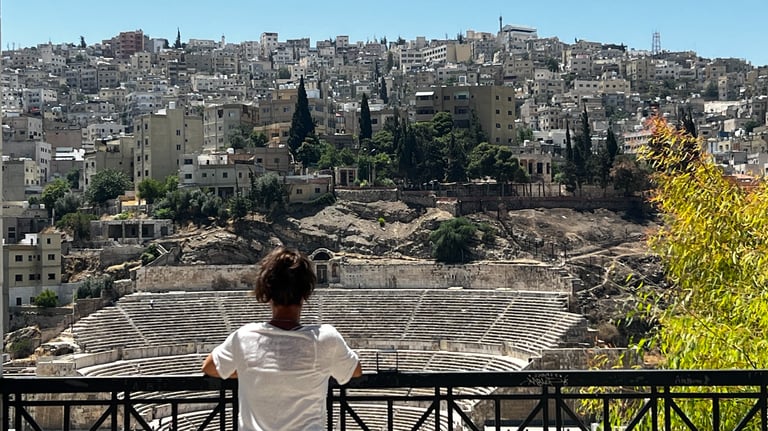

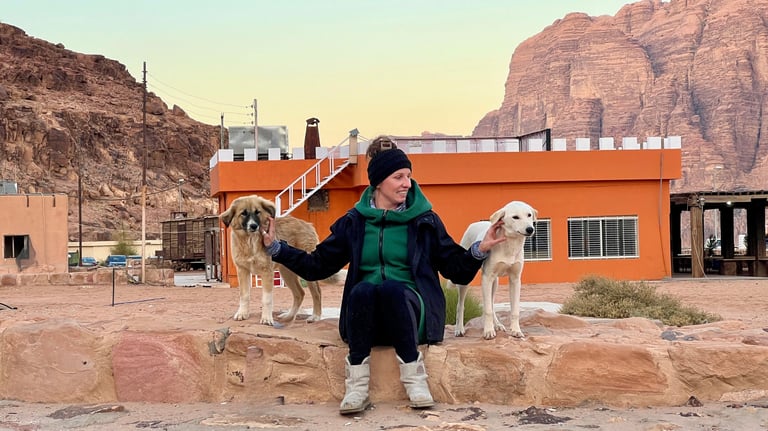

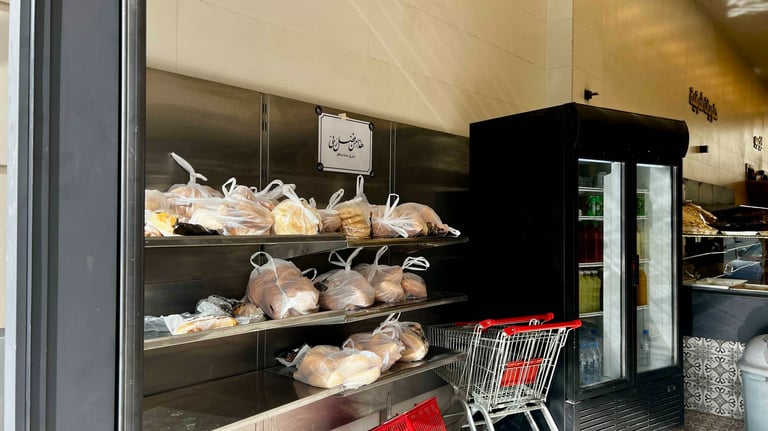

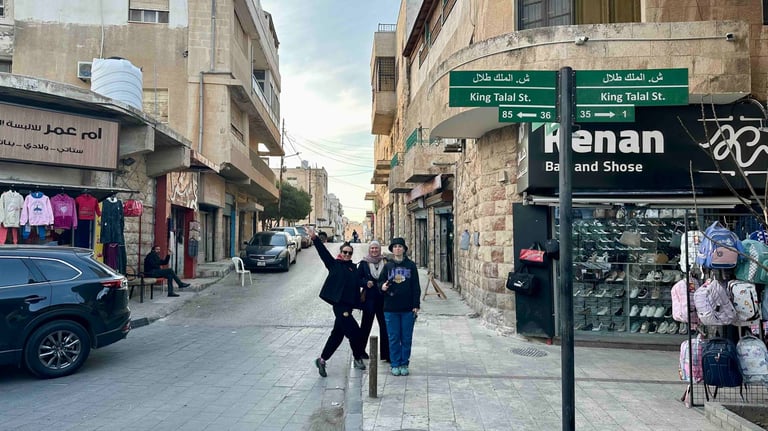

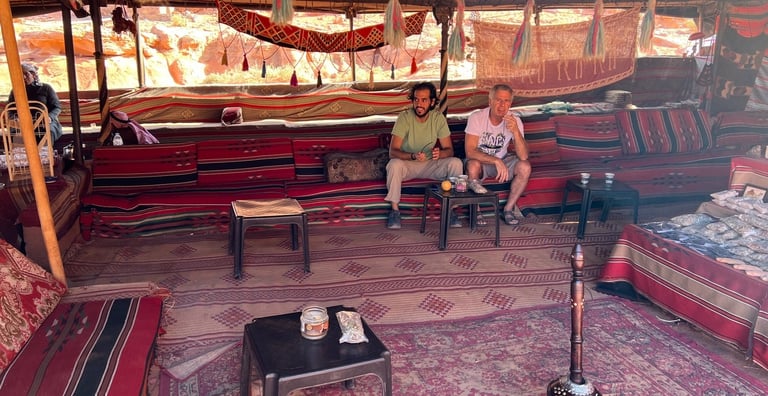

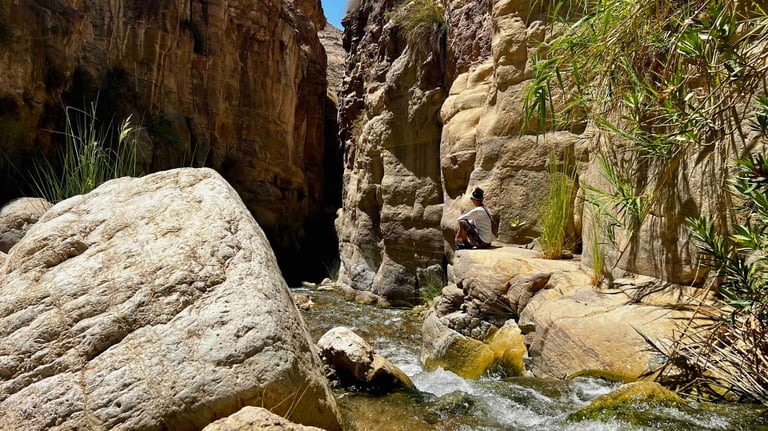

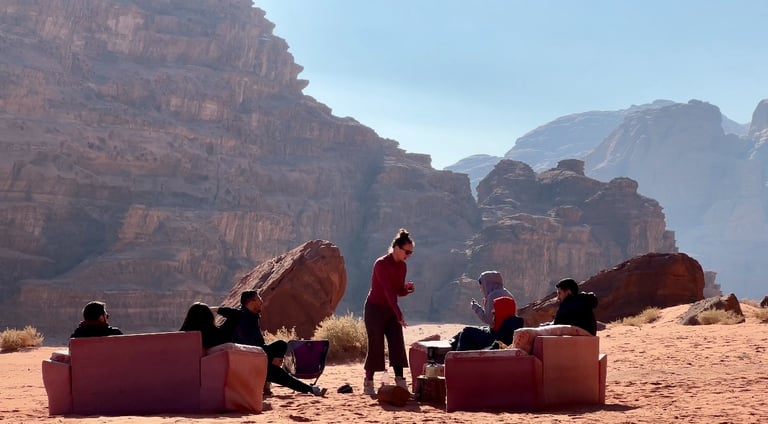

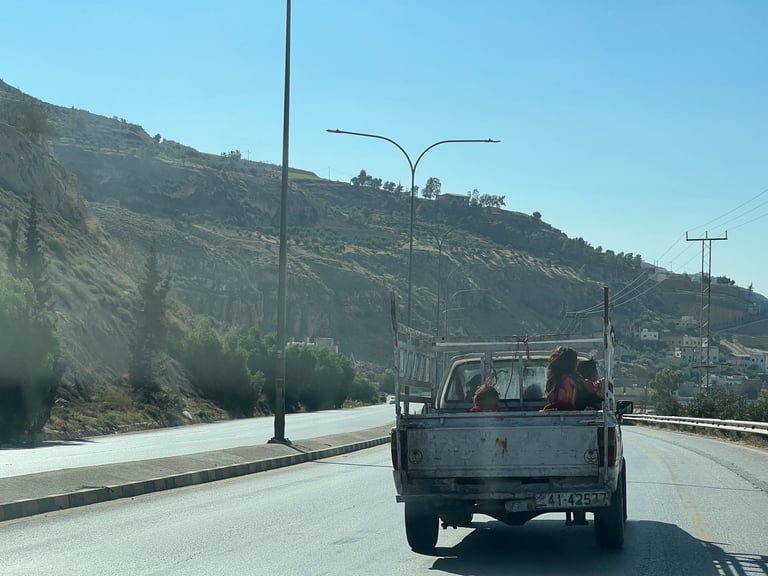

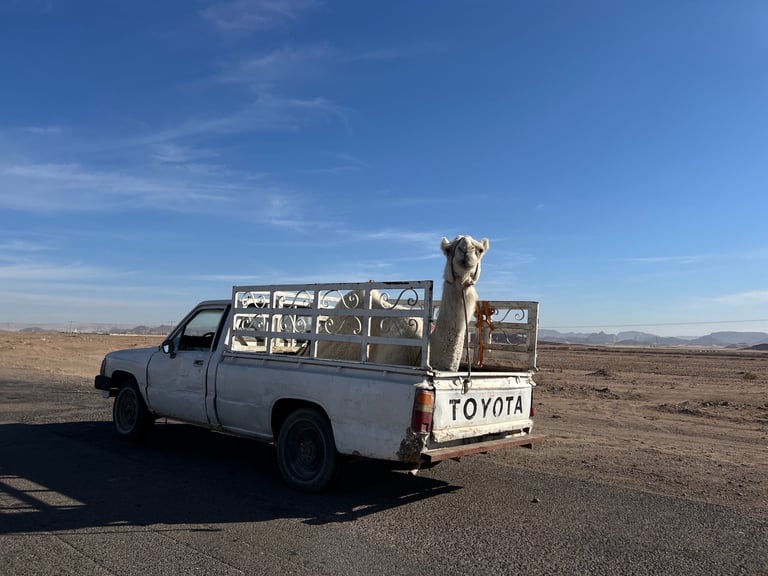

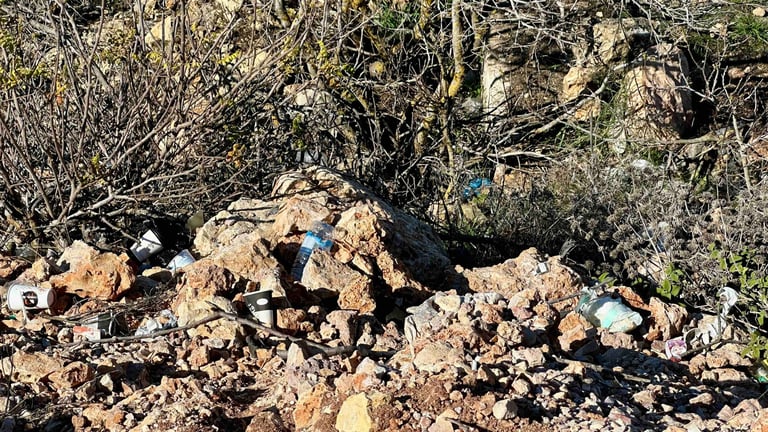

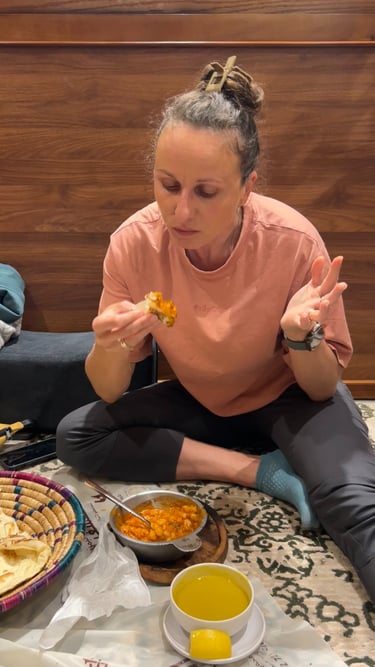

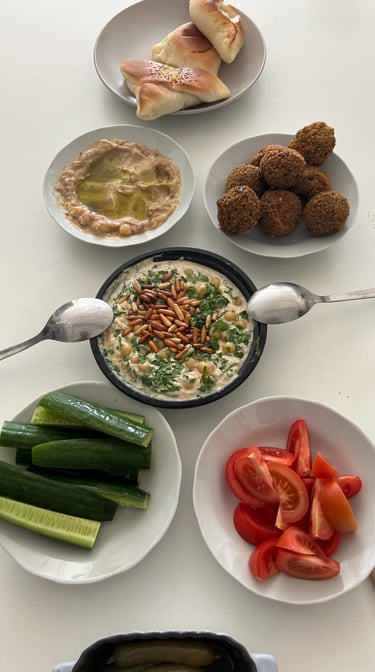

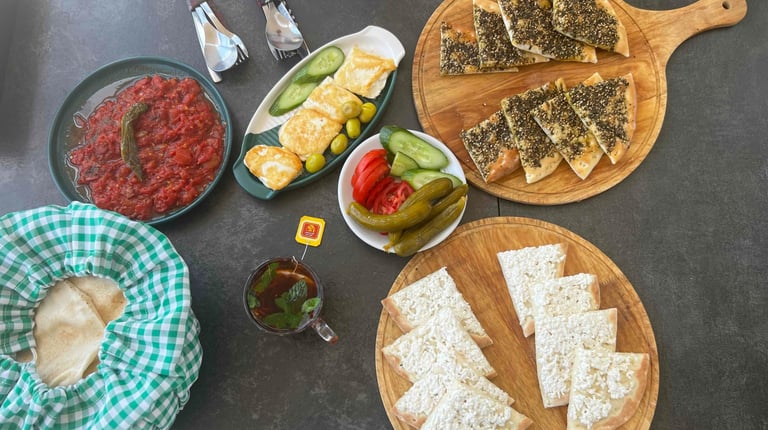

POLISH EUROPEAN LIVIG IN JORDAN
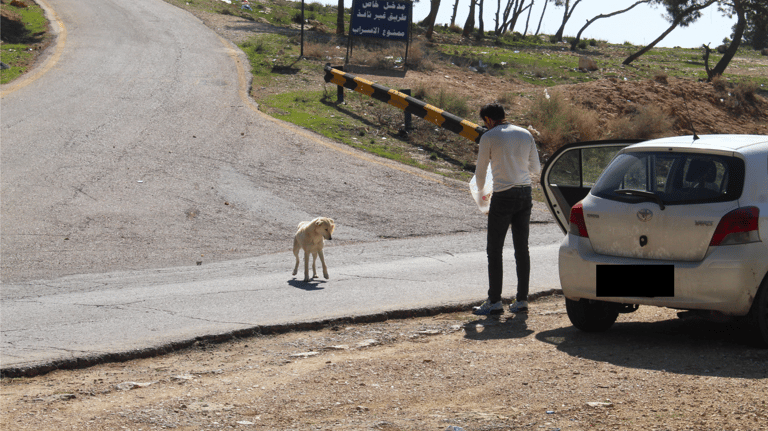

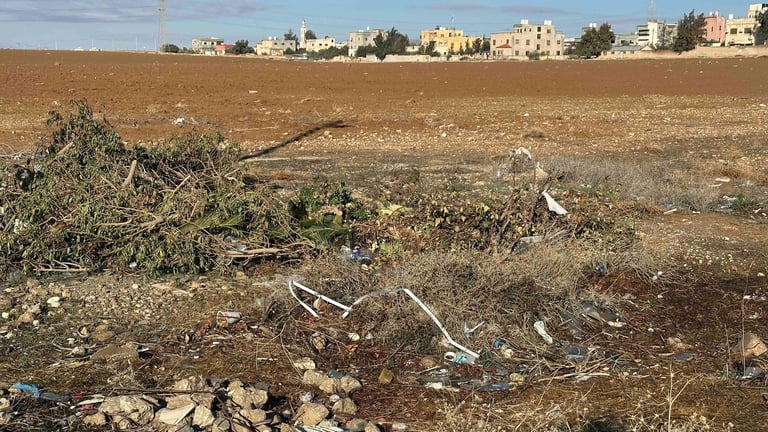

While I am missing many polish products which are not available in Jordan such as sour cream, cottage cheese (twaróg), buttermilk (maślanka), I am amazed with fruit and vegetable shops where you can buy almost everything by peace fresh and delicious.
I am also frequent visitor of herbs shops where you can not only buy fresh dried herbs by kilograms, but also natural oils, soaps, washing sponges and other organic products for relatively small money. My favourite store is Al-Saker for Herbs.
